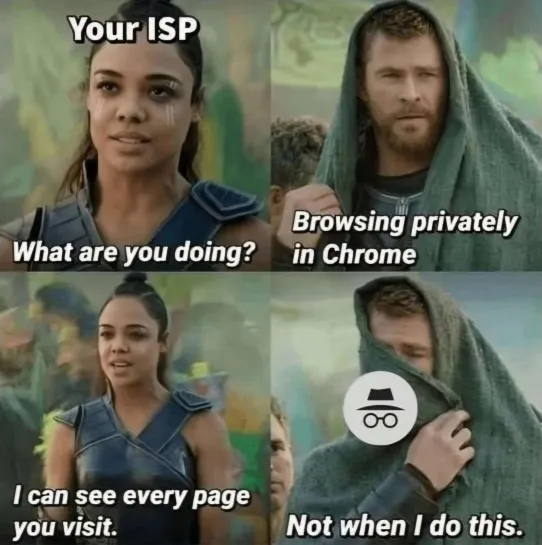this post was submitted on 23 Apr 2024
1039 points (97.0% liked)
Memes
50549 readers
236 users here now
Rules:
- Be civil and nice.
- Try not to excessively repost, as a rule of thumb, wait at least 2 months to do it if you have to.
founded 6 years ago
MODERATORS
you are viewing a single comment's thread
view the rest of the comments
view the rest of the comments

So your threat model assumes an actor with a quantum computer capable of breaking RSA, but not a regular computer capable of filtering by IP address?
A VPN encrypts traffic between your device and the VPN server, and any packet on that path includes your IP address. So anyone attempting to decrypt your VPN traffic can trivially distinguish your packets from other users of the VPN server.